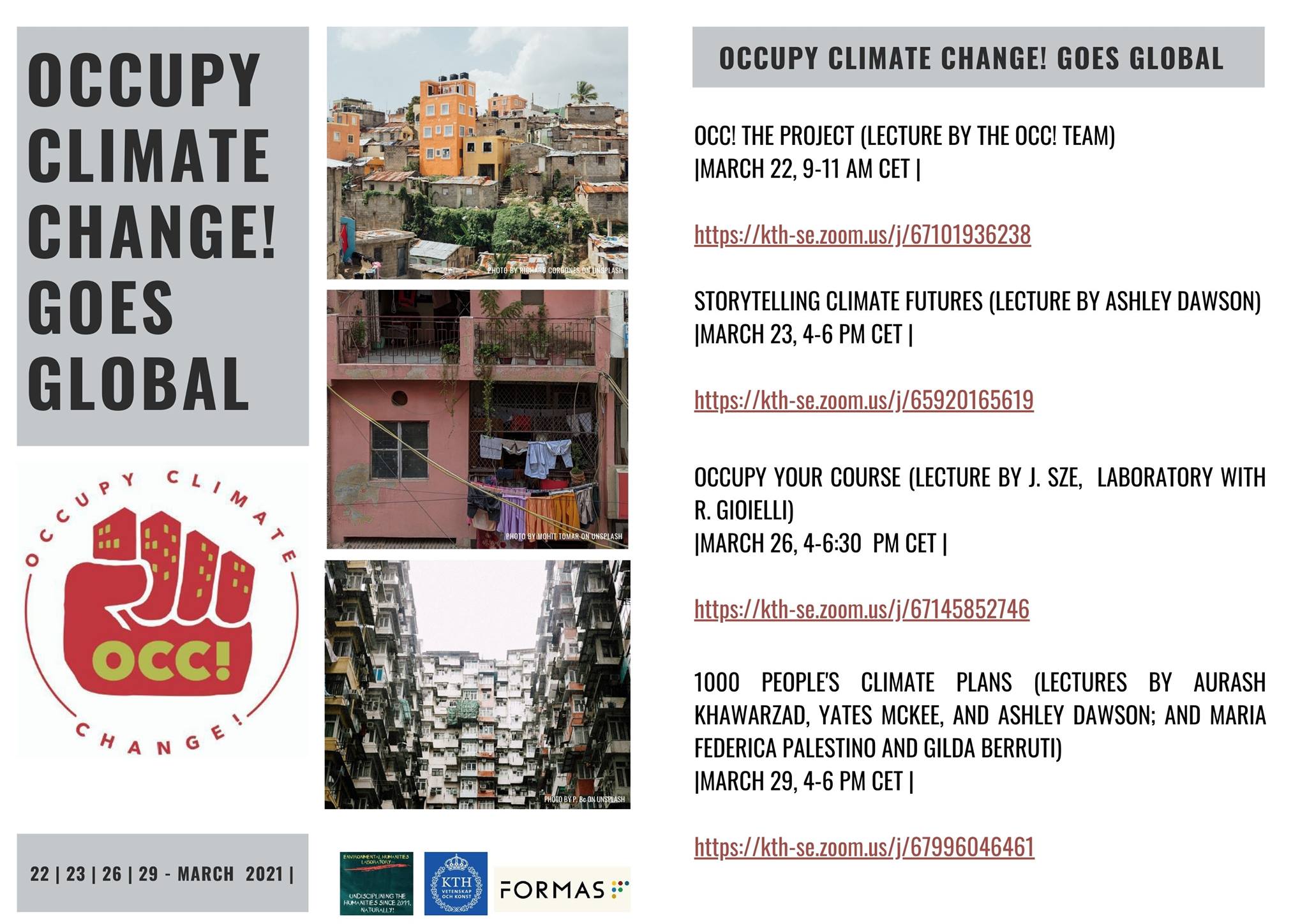Occupy Climate Change! Goes Global

Occupy Climate Change! calls up a coalition of researchers and students to explore and foster new social imaginaries to change the system, not the climate. Four workshops to meet, discuss and plan our collective work. The lectures will be recorded and made available online.
Visit the event page for links to each seminar: Occupy Climate Change! Goes Global
About the Project
OCC! researches two themes which are understudied in the literature on Climate Change (CC): the issue of Loss and Damage (L&D) and the impact of climate change on cities. In particular, OCC! willaddress those themes focusing on the practices and experiments of grassroots organizations across different cases in order to identify how their diverse, dynamic, self-organized responses to loss try to undo or embrace the damage. OCC!’s team will delve into the practices of self-organization and solidarity experimented by grassroots groups, researching which kind of knowledge is being produced and whether these practices can be scaled-up beyond “militant particularism” (Harvey & Williams 1995) and the specificities of the single case. The project will produce both a global database (The Map of the other worlds) documenting cases of grassroots initiatives that tackle climate change and an in-depth case study analysis on urban experiments from Europe (Stockholm, Naples, Istanbul), the US (New York City),and Latin America (Rio De Janeiro).
OCC!’s key objective is to test which grassroots responses to loss and damage have been successful, why,and on what scale. This comparison includes a focus on rethinking the role of expertise, knowledge production,and progressive experiments of localactors. Methodologically, OCC!’s team is grounded in the two overarching interdisciplinary fields of environmental humanities and politicalecology.
Funding agency: Formas
Duration: 2018-2020